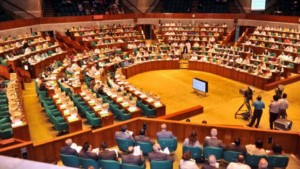European Central Bank governors are expected Thursday to begin weaning the eurozone off the high doses of support they prescribed in recent years, but they remain far away from reaching their elusive inflation target.
With healthy growth and sinking unemployment, central bankers are confident the single currency area can stand more fully on its own two feet in future even as they puzzle over why price growth has failed to pick up in step.
The ECB will therefore slash in half the volume of corporate and
government bonds it buys each month, from 60 billion to 30 billion euros ($35.4 billion), analysts expect.
At the same time, it will likely pledge to keep the monetary tap open and interest rates at historic lows for longer in order to help financial markets adjust.
The ECB began buying massive amounts of bonds in 2015 to fight the threat of deflation—a damaging downward spiral of prices and activity.
Since then, the state of the eurozone economy has improved—even after a first reduction in purchases last April, from 80 to 60 billion per month.
In the first half of this year, eurozone economic growth powered to 2.4 percent in annualised terms, outdoing even optimistic forecasts, while unemployment has fallen to an eight-year low of 9.1 percent.
ECB policymakers say low interest rates, cheap loans to banks and bond-buying have made it easier for businesses and households to borrow sorely-needed money for spending, investment or hiring.
“Monetary policy measures introduced by the ECB since June 2014 have played a pivotal role in supporting the economy,” the bank’s chief economist Peter Praet said earlier this month.
But at 1.5 percent, inflation remains short of the ECB’s target of close to, but below 2.0 percent—believed to be most favourable for stable economic growth—and is forecast to remain sluggish.
“We doubt this will deter the bank” from its course of withdrawing support, Capital Economics analyst Jennifer McKeown said.
ECB President Mario Draghi “is likely to argue that the improvement in economic conditions should ultimately lead to a little more inflationary pressure,” she added.
Battle in the boardroom –
Some on the ECB’s governing council remain loath to withdraw their powerful medicine, fearing they might nip the recovery in the bud by tightening access to money—a fate that the US Federal Reserve suffered in 2013.
Meanwhile, other governors have long warned of the risks of easy money, arguing it has softened the market discipline that usually restrains households, businesses and states from borrowing too much.
That could lead to credit-fuelled price bubbles in some sectors, with some pointing to rising property markets in popular eurozone cities.
Meanwhile, many observers point to technical limits that will prevent the ECB from continuing to buy bonds indefinitely.
Ahead of the meeting on Thursday, “ECB communication has been remarkably consistent in signalling a ‘slower for longer’ QE extension into 2018,” said Pictet Wealth Management economist Frederik Ducrozet.
QE, or quantitative easing, is the technical name for the bond-buying programme.
By lowering the amount it spends on bonds each month, but extending the duration, the bank can keep supporting the economy—even as it acknowledges healthier growth and makes a concession to fears it has gone too far.
If the ECB extends its purchases until September, as analysts expect, it will have bought some 2.5 trillion euros of bonds.
Meanwhile, it has vowed not to raise interest rates until “well after” the end of bond-buying.
Prolonging the scheme suggests that a hike remains far off, keeping money cheap.
Another key concern for central bankers is the euro/dollar exchange rate, which spiked to $1.20 over the summer as talk of winding down purchases grew before ebbing back more recently.
A more expensive euro could brake eurozone inflation and economic activity, placing the price growth target even further out of reach.
“We think the ECB will maintain its commitment to a long period of
unchanged interest rates” to limit the impact on the euro and keep financial markets calm, Capital Economics’ McKeown predicted, reports AFP, Frankfurt Am Main.




